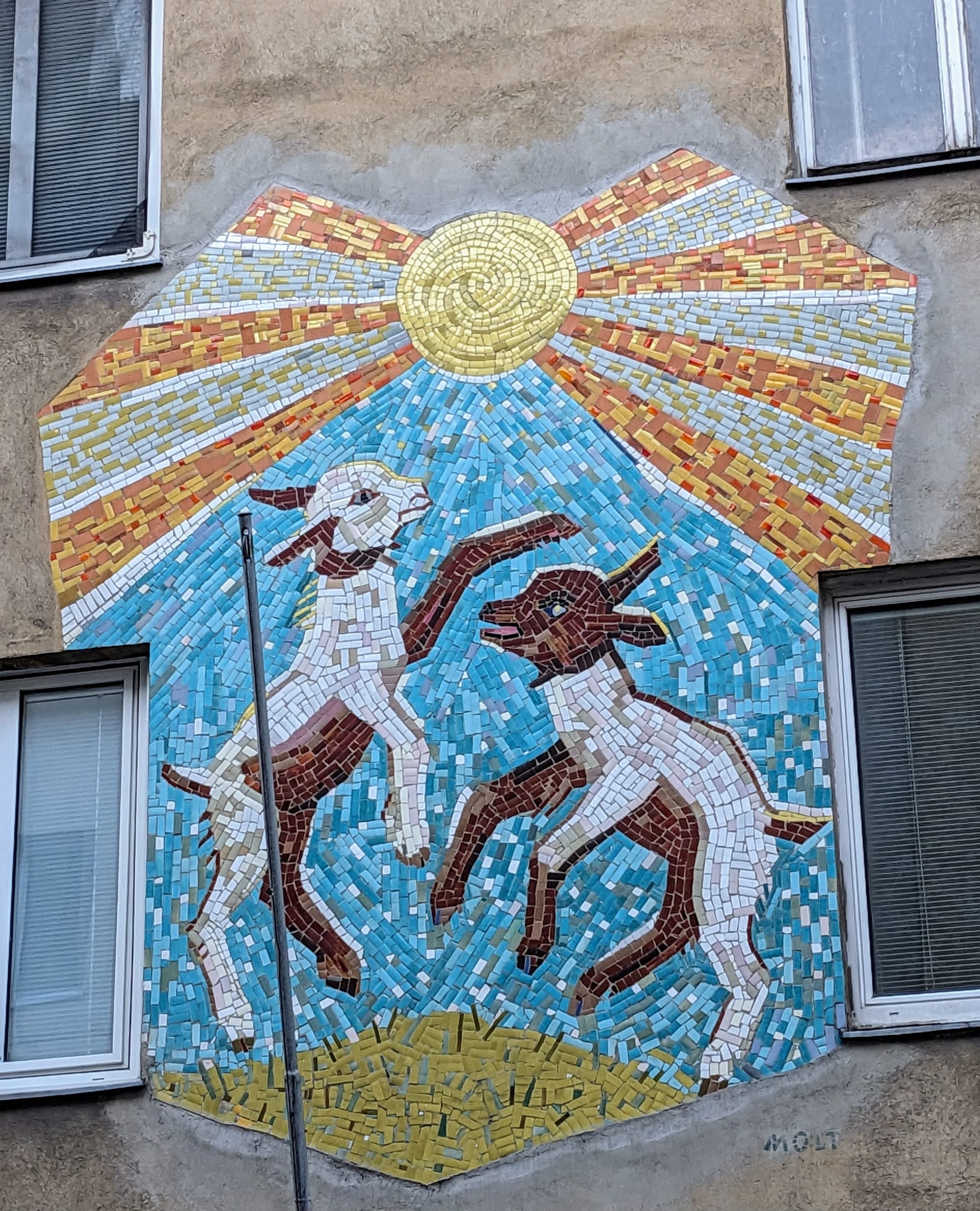Austria’s veto power on the Schengen Area expansion, and how it hurts Europe

Word association time. What comes to mind when I mention Austria? Freud? Mozart? Wiener schnitzel? Falco? David Alaba? Franz Ferdinand, (the man, not the Scottish band)? The snow globe? Friedrich Hayek? A certain failed artist who we’d rather not think about yet must, given the state of the world? The Von Trapps? Ahhnold? The Third Man?
Why am I thinking about noteworthy Austrian contributions to the world? It all has to do with this former imperial power’s place on the global stage today, and in particular the power it currently yields in Europe and for New Europe.
On 31 March, Bulgaria and Romania will take a big step toward full integration into the Schengen area, which allows visa-free movement within Europe (29 countries, including Bulgaria and Romania--25 of which are in the EU). This is a long awaited acceptance, and certainly cause for some satisfaction. AND it is not a complete acceptance, despite the European Parliament, once again, affirming that these two countries "have already fulfilled the necessary requirements to be admitted into Schengen."
The catch: these two Southeastern European EU member-states were granted what has been called "air and maritime" Schengen rights. So travellers by plane or boat from one Schengen member state to another will not be required to present visas (or indeed passports) upon entry. Travellers by car, train, foot, carriage, bicycle, etc., will still need to present papers at the border. So the aim of an EU that allows free movement of people within its external borders is still not met here.
Given that the EU has evaluated these countries' qualifications for more than a decade now and determined they should have full Schengen rights, it is easy to consider the ongoing obstruction a failure of the EU, in general. Ultimately, though, the party that has held undue influence over the fates of Romanians and Bulgarians (and, importantly, EU and Schengen citizens across Europe) is Austria.
From the perspective of an American journalist, I know we pay very little attention to Austria. Few of us consider why Austria is not in NATO, and how its commitment to neutrality has long made it an attractive place for Russian capital, and by extension for Russian oligarchs. We also have also largely ignored the Austrian government’s accommodating stance to Russia’s belligerent interests in Europe, and what appears to be Kremlin influence over political elites.
My colleagues at CSD appear simultaneously amused and annoyed by the power Austria holds over the full Europeanism of many New Europe nations. They also appreciate that there are genuine concerns that should encourage policymakers of Bulgaria to look inward at some room for improvement, despite the fact that the nation has earned entry into Schengen, and more respect within the EU

With all this in mind, I turned to Ruslan Stefanov CSD's chief economist, for a bit of context.
GG: Bulgaria and Romania are being granted so-called "Air and Sea Schengen" rights. This is significant progress, and yet it is incomplete. Is this something that you and colleagues are celebrating?
Stefanov: Most certainly, this is a success for Bulgaria, Romania, and Europe. And a cause for celebration. Yet, the celebratory mood has been dimmed by the fact that the Schengen accession happens over a decade after the two countries had met all formal pre-conditions or conditionalities, and it is only partial. This shows the weakening of the European model on two important counts. First, the EU has been unable to assertively change Bulgaria and Romania systemic corruption problems. Lax capacity to change and enforce policies has also been a problem for other policy areas and countries in Europe, which was an issue in the Brexit debates, and comes up often in the rising Eurosceptic wave across the continent. Second, Austria’s position, which in no way can serve as a shining example of law enforcement, most recently on sanctions against Russia, has created more division and harm than benefit for Europe as well as its own citizens. Hence, its government’s position is seen as facetious both internally and externally.
GG: I've come to appreciate just how frustrating it is to see Austria, of all places, wield such influence, and basically have veto power over Bulgaria's future in Europe. Can you give me some context for why they have such influence?
Stefanov: This is simple and straightforward: most of the EU decisions are taken by unanimity in the European Council. Hence, each and every country can exert its veto power. The EU has been working towards changing this rule, yet many countries fear they will lose their voice on important matters within the club. Yet, if the EU and its members want to become more geopolitically relevant, they would need to step up their joint decision-making. This has become dramatically clear in the case of Russia’s unjustified war in Ukraine and the stalled EU enlargement in the Western Balkans. In both cases, the lack of quick, plausible executive decisions has harmed EU’s interests.
The Netherlands and Hungary have also threatened to veto Bulgaria’s Schengen entry, both on narrow national, including internal political, and not European grounds. So Austria is not an exception here, and I do not think we should be pitching Bulgaria or other member states against Austria. Rather, I think we should draw conclusions about how to best overcome such divisions within Europe, so that they do not harm our joint goals in the future.
GG: Thank you for reeling me back a bit. I appreciate the need to not to oversimplify and frame this as too much of a direct conflict. Still, it does seem ironic that Austria, of all places, would basically hold the higher ground on corruption and rule of law, no?
Stefanov: In that respect, yes, Austria is not a paragon of good governance, in particular as it comes to politics. Yet, I would say, one thing that Bulgaria could borrow as a lesson is that we have largely failed on the corruption challenge. There has not been any convincing investigation or sentence of graft in the past 30 years. So while Austria does not have the moral ground to stop Bulgaria on Schengen, the latter does not have the moral ground to say, “we did our part.” Yes, it covered the formal criteria, but clearly this is not enough for the spirit of the Schengen legislation - the country needs to deliver on rule of law.
I think not letting Bulgaria in Schengen is overwhelmingly negative for the EU, and this has been confirmed by all its institutions and other member states. There is no doubt about it, in particular in the face of Russia’s external threat. I hope the EU would use this episode to actually ask both Austria and Bulgaria to deliver on the EU promise of sanctions against the Kremlin. Both countries have been dragging their feet in an astonishing manner in enforcing sanctions. Their governments have tried to carve out exclusions from the sanctions, which they deem in their national interests, yet which have continued the flow of billions to Kremlin’s coffers. This formalistic compliance, without any regard for focusing on the actual final goal–stopping the flow of funds for the Kremlin's war–is exactly what has been at stake with Bulgaria’s Schengen application.

Thank you, dear reader, for taking some time to appreciate the complexities of intra-Europe relations. We’ll be keeping an eye on this story as Bulgaria and Romania negotiate for full Schengen rights. If you are now intrigued and ready to dive into some archives, here are some reports for added context:
If you have only a little time: Kremlin Playbook 2: The Enablers
When If you have a lot of time (and ability to focus): The Kremlin Playbook in Europe
& the Goldilocks option: How Austria became Putin’s Alpine Fortress
Thanks for reading Notes from New Europe. Subscribe for free to receive new posts and support this work.




